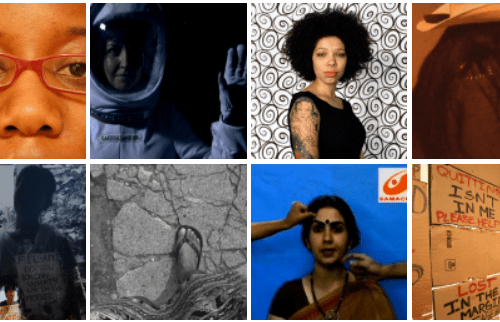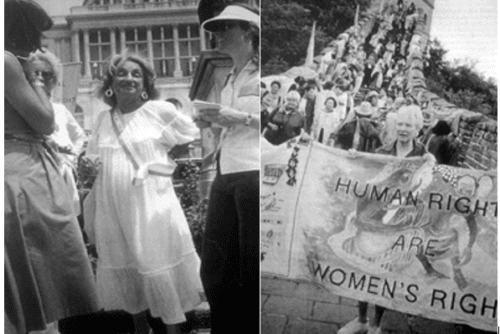When we began working on this collection, we were still in the midst of the Bush era, and many movements in the United States were in the midst of a particularly hostile administration that in several ways celebrated being openly hostile to countless marginalized groups, including queer people. In fact, Bush devised much of his 2004 reelection strategy on accompanying constitutional bans on same-sex marriage in key battleground states to ensure a strong conservative turnout. While many of the essays here represent the thinking of queer activists and scholars working within queer organizations or queer studies, or those working in other scholarly and political contexts, there was a sense of urgency at the time about articulating the limitations of single-issue politics and the focus on legislation and policy change as the sole path towards queer liberation. But, as this collection articulates, many queer and trans radicals critique the mainstream LGBT movement not just as a difference of form, but as an actual dispute over essence. Many of the essays argue that the LGBT movement is not at all interested in liberation, but rather in civil equality. Equality is a frame that many of us understand as leaving the most marginal queer identities vulnerable to other forms of state and interpersonal violence—particularly where race, class, gender identity, disability, immigration, and criminal status mark the ways in which they experience their queerness—an experience that doesn’t necessarily mean circuit parties and softball teams. Though marginalized queers and their communities have long histories of resistance, a queered experience for a person otherwise racially marginalized can mean proximity to violence, HIV/AIDS, prison sentences, police violence, homelessness, and homicide.
This collection represents a collective roar to the open skies: Can’t we do better than equality?
But whatever we think about the mainstream equality movement, it is almost finished with its agenda, and thank goodness. Most of the policy issues that the mainstream LGBT movement has made the central focus of its agenda are already won. In 2009, the Matthew Shepard and James Byrd, Jr. Act was passed, adding sexual orientation and gender identity to the list of protected categories for federal hate crimes statutes, and the FBI will now begin tracking such acts of violence. In 2011, the “Don’t Ask, Don’t Tell” policy ended after 18 years, officially allowing for gay and lesbians to serve openly in the military. In 2011, Congress introduced the Respect for Marriage Act, which has some bipartisan support, and will ultimately void the 1996 Defense of Marriage Act, paving the way for some sort of federally recognized same-sex marriage, civil union, or domestic partnership status just on the horizon. Lastly, the Employee Non-Discrimination Act was reintroduced this year, but languishes in committee.
Additionally, the federal government under the Obama administration has also made several administrative and policy changes that benefit LGBT people in the areas of Medicaid, hospital visitation rights, and passport changes for transgender people. All of these things are being done so that there are fewer and fewer barriers to future partner recognition at the federal level, much like, as many scholars note, Harry Truman’s order to desegregate the armed forces had to be in place before the end of de jure segregation.
So while there are many indications that the winds of change have shifted in favor of legal recognition for LGBT people, the questions remain: What about the rest of us? What do we do now?
It is apparent that most of the state and national equality organizations are grappling with this very question: After marriage, then what? Many of the authors in the collection have had different ideas and employed different strategies, albeit with different levels of success. But before the question of a more radical way forward can be answered, we also have to contend with some very alarming trends now occurring in the movement.
Due to the global economic crisis, nonprofit organizations are seeing a reduction in available funding from foundations. Long before this downturn, LGBT-focused funders had given very little support to grassroots queer and trans organizations focused on racial and economic justice issues, and the downturn is only making foundation funding harder to come by. If organizations do not focus on very corporate “measurable goals and outcomes,” they are often vulnerable to losing funding or not being funded at all.
Interestingly, I have personally seen grassroots organizations be described as not having capacity or impact, or failing to meet the goals of their grant proposals, when many of the equality organizations have failed to do the same. And yet, because of their ability to market and publicize their work, they tend to have long-established personal relationships with foundation officers, and often get away with multi-year grants in the hundreds of thousands. If we use marriage equality as an example, these well-funded LGBT equality organizations have gotten hammered in electoral campaigns in state after state—mostly resulting in the passing of worse laws (especially around same-sex marriage) than existed before. Yet, these organizations continue to be well funded by LGBT foundations, despite an obvious failure to pass the policies they are fighting for. Smaller people-of-color-led queer organizations, on the other hand, have often been chided by program officers, or have had funding cut when they fail to meet each and every detail of their deliverables, even if they have had considerable impact, or are respected by their peers in the field for their work.
So while the economic downturn is threatening the sustainability of many foundations, the ideology of many foundations has made it easy for them to distance themselves from more grassroots work. And much like the retraction of funding by wealthy gay donors that happened in the late 1990s for HIV/AIDS work once white gay men stopped dying at such rapid rates, I fear a similar drawback in funding for LGBT organizations once marriage equality is won.
But marriage equality is also further exposing the political orientation of many LGBT funders and organizations. The New York state passage of same-sex marriage in June of 2011 was largely won by wealthy hedge fund managers and Tea Party sympathizers, who raised money for four Republican state legislators to provide the votes to ensure its passage. In a piece written for Alternet.com, I argued that “many of the gay donors who raise money, even for LGBT equality organizations, are ‘progressives’ only because of marriage, and actually do not support most of what the rest of us would call a left agenda (single-payer health care system, collective bargaining, public education, an end to massive imprisonment, reproductive justice, etc.).” 1
To prove my point, the Albany Times Union reported in September 2011, that New York City Mayor Michael Bloomberg was hosting a fundraiser for these Republican lawmakers, held on October 13, 2011. The event’s hosting committee included Tim Gill (of the Gill Foundation, an LGBT funder), Paul E. Singer (chairman of the conservative Manhattan Institute), and other host organizations included representatives from the coalition Marriage Equality New York, the Gill Action Fund, and the Human Rights Campaign. 2
This represents a potential crisis in future funding for more progressive and radical LGBT organizations. But more importantly, it represents a definite political move to the right by the LGBT equality movement, as well as the new alliance of LGBT organizations, Republican lawmakers, right-wing think tanks, and donors.
All of this leads me to conclude that the incorporation of “LGBT Equality” into a conservative political framework can only mean that we will continue to see “LGBT rights,” both domestically and internationally, being used as a way to make racial justice issues a foregone conclusion. Radical Jewish lesbian writer Sarah Schulman has named the ways this is playing out in Israel and its relationship to Palestinians. 3
As long as Western liberal democracies can name “gay rights” as the new litmus test for an appropriate twenty-first century democracy, we can obsess about “anti-gay” legislation in Nigeria and say nothing about the violence and economic exploitation of the Shell Oil Company on the land and bodies of Nigerians. We can be seduced by the international gay travel industry to visit “gay friendly” (and “post-racial paradise”) Rio de Janeiro, and say nothing of the massive police violence and genocidal removal of blacks from favelas in preparation for the 2014 World Cup and 2016 Summer Olympics. Is it any wonder that many people outside of the United States, particularly those in sub-Saharan Africa, have grown resentful of increasing threats to pull critical funding by NGOs and Western nations for not being “LGBT friendly,” while we let all other sorts of violence and exploitation (often by corporations and evangelical churches that originate within the West) go unmentioned? 4 A Kenyan political cartoon published in the Kenya Star in November 2011 shows a white man standing behind an African man (whose pants are pulled down to the ankles) demanding, “bend if you want the money.” The white man is also holding a newspaper with the headline: “UK attaches funding to gay rights.” 5
It is clear that there is still much work to be done after marriage—much of it is work that needed to be done before same-sex marriage. There may not be the kind of funding to do the work that many of the articles here are representing. But we must continue to put forward queer analyses that throw off the boot of racialized violence that many of us find ourselves under. We have to continue to look for ways to demand a future beyond equality.
- Kenyon Farrow, “Gay Marriage In New York: Progressive Victory or GOP Roadmap?” Alternet.com 27 Jun. 2011.[↑]
- Jimmy Vielkind, “Fundraiser fetes GOP same-sex marriage senators,” Albany Times Union7 Sept. 2011.[↑]
- Sarah Schulman, “Israel and ‘Pinkwashing,’” New York Times 22 Nov. 2011: A31.[↑]
- On December 6, 2011, Secretary of State Hilary Rodham Clinton gave a much lauded speech in front of world leaders about US support for the human rights of LGBT people across the globe, and that the State Department was going to allocate funding to local LGBT activist groups in countries that were particularly hostile. Uganda was one of the countries that year to see a round of legislation introduced that further criminalized LGBT people, and yet Clinton made no mention of the US evangelical churches’ role in helping to create these hostile climates, particularly in Africa. See Political Research Associates, Globalizing the Culture Wars: U.S. Conservatives, African Churches, and Homophobia (Somerville: Political Research Associates, 2009).[↑]
- Bil Browning, “Kenyan Newspaper Cartoon Mocks Gay Rights,” Bilerico.com 10 Nov. 2011.[↑]



